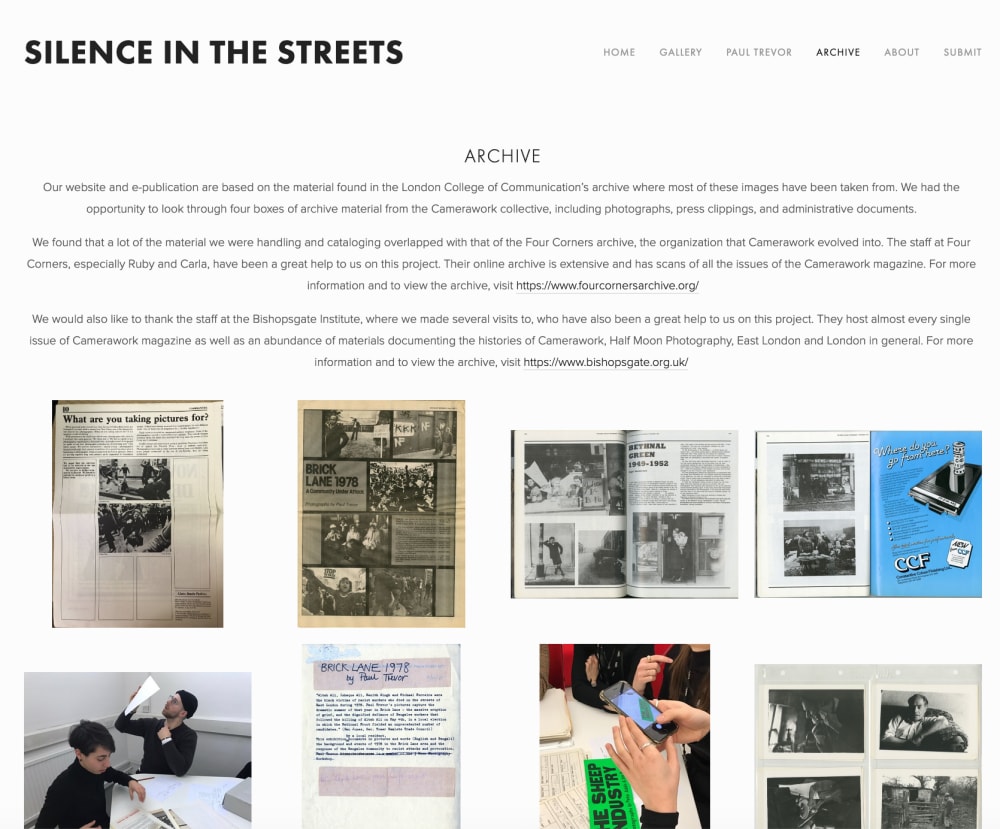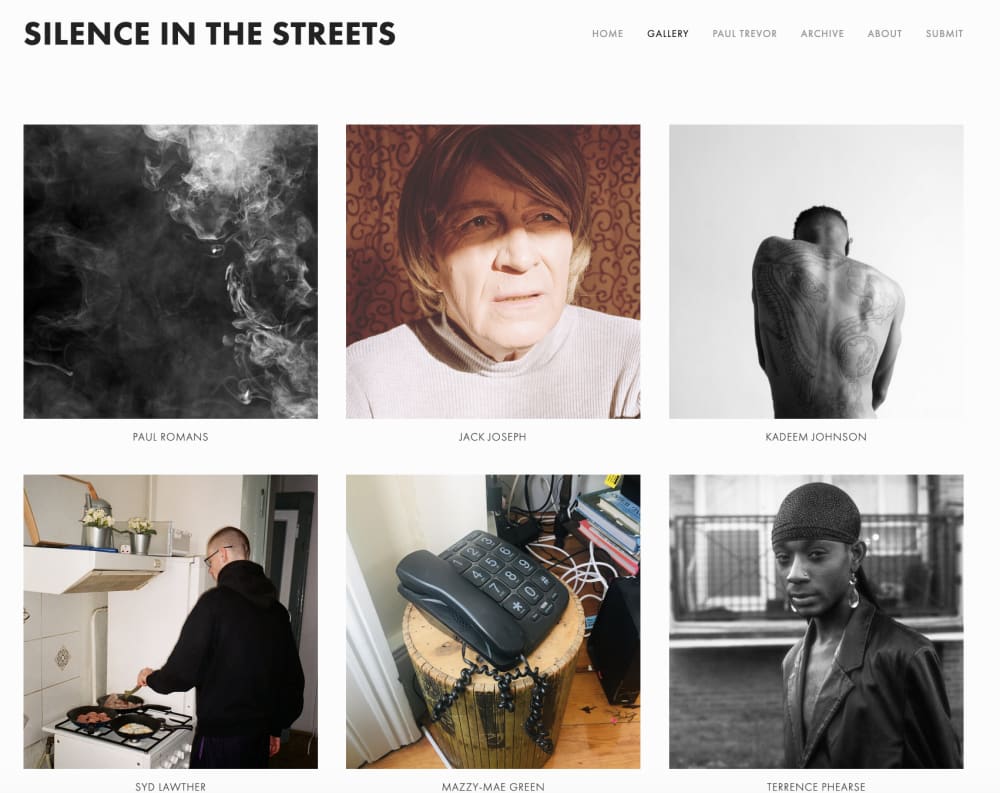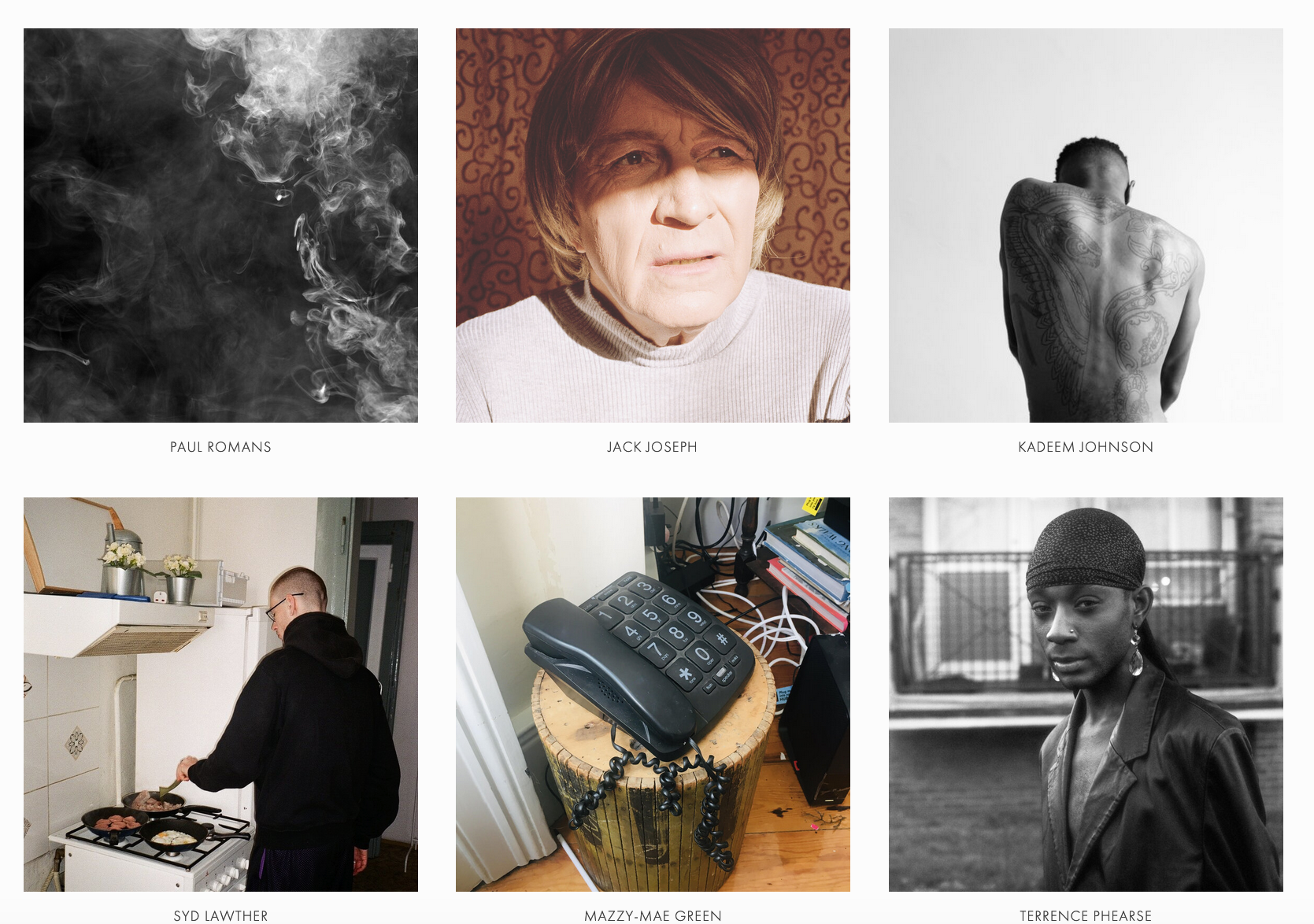A curatorial publication and platform developed by MA Culture, Criticism and Curation students, Silence in the streets focuses on British community photography group Camerawork. Here, Greta Voeller shares how researching and reflecting on the past can alter your understanding of the present.
We live in strange times. In only a few months we have experienced an invisible revolt, a drastic change in perspective and habitual living conditions. Everything just stopped. What once happened outside, now takes place indoors. Our walls are deemed protectors instead of dividers and we meet through the distance that unites us. Our streets are empty and still, yet entirely filled by our voices that have been silenced.
Our project’s starting point lay in the archival nature of our curatorial brief; investigating the work of British community photography group Camerawork through the archive at London College of Communication. The photography collective’s standpoint was clearly one of protest towards institutionalised structures of knowledge and artistic merit and as we encountered its work we started questioning our own position as audiences, creatives and “prosumers”. Formed in the early 1970s as a group of community photographers enabling a cultural détournement (or rerouting) of documentative photography, the collective later expanded into a gallery called Half Moon Photography Workshop and its extension Camerawork magazine.
Our curatorial team identified a central question that defines the collective’s aims and legacy; instead of asking “is it art?” it queried “who is it for?”

This project began pre-crisis but once Covid-19 hit, we had to rethink the purpose of our work. When thrown into a sudden state of critical amendments, the importance of art and documentation during times of isolation became pertinent.
We had to adapt the curatorial brief of constructing a physical window display to a virtual space. We expanded the question “who is it for?” into enlarged spaces of communal encounters. The notion of community as a central focus of our work remained a principle factor in deciphering both the historical and contemporary notion of documenting "communities in crisis".
The result is an online platform which incorporates two distinguishing aspects, responding to the same preoccupations. The publication covers the archival work we have been privileged to develop, looking at Camerawork’s legacy and focusing on a particular event: the Brick Lane riots documented by Paul Trevor. This historical incident is a case study from which to discuss the collective’s stance and methodology capturing sociocultural turning points. The online component expands into a selection of responses from an array of international contributors, who replied to the prompt "documenting the idea of community during the current Covid-19 isolation". These responses take on different shapes – photographs, writings or drawings – which act as singular diaries narrating a longing for communities we once belonged in and hope to return to.

The name Silence in the Streets serves as a metaphorical reference to how we perceive our surroundings in times of change, but also how silence can be an indicator of a halt during a crisis. We interpret it as a direct link to the way protest has traditionally been tackled, i.e. on the streets, which serves as a metaphor for the place where we come together as communities, where we unite, where we provoke change but also from where we escape.
As we interrogate this present state, we acknowledge the privileged position we occupy as creative practitioners, analysing the currents of our cultural pasts and shaping the rhythms of our probable futures. The contemporary condition is in a state of crisis due to its missed efforts to assert an alternate post-capitalist domain, a novel environmental consciousness, dominant layers of globalism and technology, unresolved uncertainties of exceptional nature. Yet as strange and unsettling as this may seem, it inundates us with opportunities to restructure the paradigms that held us captive. We live in strange times whose strangeness can be shaped into a new norm, an embodied consciousness of communal thinking and surviving. We are together in this, are we not?

The project questions historical and contemporary notions of community and while the documentation on this topic keeps shifting according to the times in which it is produced, its purpose retains common threats that cannot be ignored.
In our "iconomy-infused" society, the notion of spectacles we encounter daily have mutated into nurturers and distracters of knowledge and human emotions. But while we feed on information, symbols and images that appear to instantly gratify, it is the essence and intention of the content we consume that will fully sate us. This is what we attempted to do here, respectfully interrogate and extend this archive by proving its validity within a contemporary sphere and provide longevity to Camerawork’s mission. We hope to have established a platform whose demystification in purpose and approach, allows for enlarged shared experiences and so, as the collective originally aimed, “contribute to the process by which we grow in capacity and power to control our own lives”.
There’s a noise that still echoes in the streets; it’s our voices that may seem silent but they’re alive.
Silence In The Streets was curated by Na An, Jamie Johnson, Liza Kupreeva, Sarah Moriarty, Terrence Phearse II, Margherita Salati, Greta Voeller, Chuqi Wang, Clara Jean Wicaksono.



